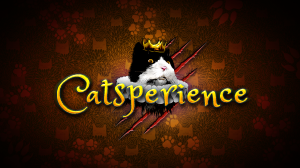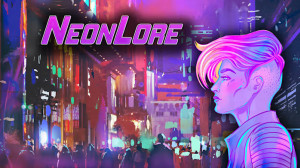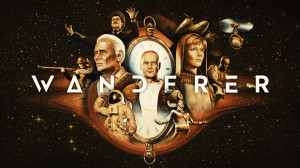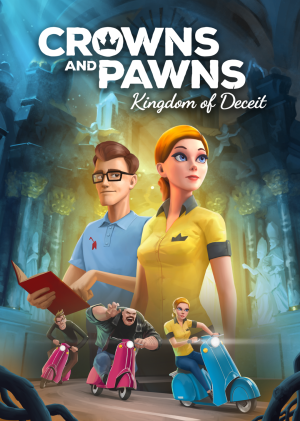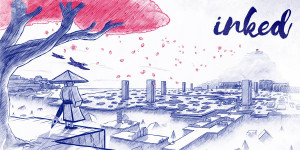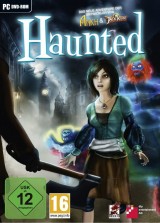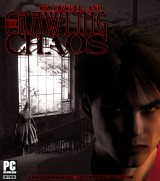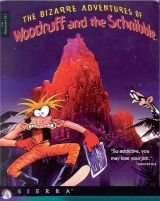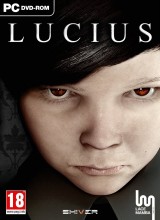Review for Attentat 1942
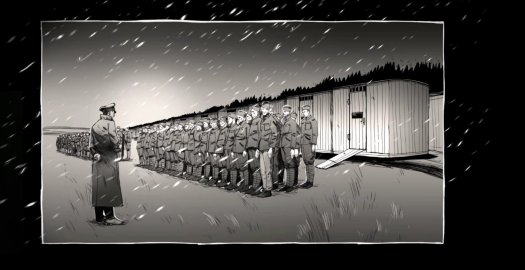
The FMV genre – “interactive movies” – has seen a bit of a resurgence in recent years. A once hot but swiftly abandoned product of the 90s, the format became viable again thanks to the ubiquity of quality video production equipment, putting these previously expensive endeavors within reach for lower-budget indie developers. Most FMV games I’ve played (even the best, like 2015’s delightful Contradiction) embrace a certain campiness – but in the moving and memorable Attentat 1942, that can’t be further from the case.
Attentat 1942 puts you in the shoes of an anonymous grandson of aging Czech Holocaust survivor Jindřich Jelínek. It is 2001 – a time that, unlike today, still had plenty of WWII veterans living among us – and Jindřich seems to be nearing the end of his life while on long-term hospital care. He spends his days resting and isn’t well enough to speak. As your character visits (in what could be his final weeks), you pursue a fascination with your grandfather’s life, choosing to dig into the past to find the truth of what he experienced during World War II.
The gameplay primarily consists of navigating through live-action video scenes where you’ll visit and interview Jindřich's surviving relatives and wartime associates, following leads from these conversations to track down lost connections. A compelling central mystery soon emerges as you learn that the Gestapo arrested Jindřich shortly after the assassination of high-ranking SS officer (and architect of the Holocaust) Reinhard Heydrich. Was your grandfather connected to this pivotal event?
Along the way, by asking your leads the right questions and gaining their trust, they’ll tell you stories that allow you to enter the past via stylized hand-drawn artistic flashbacks. In these sequences, you must relive pivotal moments in the survivors’ lives and try to make the right choices amidst gloomy scenarios, from Jewish citizens hiding under the noses of Nazi occupiers to Auschwitz prisoners struggling to survive daily life.
Don’t let this elevator pitch undermine the game's appeal, but Attentat 1942 is the first adventure game I’ve played that feels like a well-made, interactive documentary. The survivors you’ll meet are fictional, but clearly, these characters are the product of extensive historical research done with care – and the primarily Czech cast feel like real, regular people recounting their life stories, not trained actors hamming it up for awards. It all adds up to a believable, fascinating portrait of Holocaust history that stands unique in all forms of WWII media I’ve experienced.
There’s plenty of tragedy in the stories of the interviewees, as well as some comforting bright spots. One highlight that sets the narrative in motion is when you find your grandfather’s diary (encrypted with a code that you must crack in one of the game's few genuine puzzles). Within its pages, you get to know Jindřich as a relatable idealist with a strong moral center, inspired by the works of revolutionary playwrights and filmmakers of the era who used their art forms to denounce fascism without being so on-the-nose as to arouse suspicion from Hitler’s forces. This diary lets you follow his life story over several years of the war – from his early (failed) attempts to aid the revolution to the new lease on life he gains from meeting the player’s eventual grandmother. I challenge players to read these passages and not become intimately invested in their goals and relationships. It’s some of the finest “journal writing” in gaming.
Conversations with the survivors are moving and poignant. One Czech man recounts the day in September 1941 when he was forced to start wearing a yellow star in public – despite not feeling a solid connection to his admittedly light Jewish heritage. Even though the label alienated him from the public, he talks about how it brought him closer to other persecuted Jews and strengthened their sense of shared culture in some ways. References to the past like this are effortlessly woven into the narrative, making the realness of the Holocaust far easier to grasp than any history book can pull off.
But speaking of history books, there’s a novel one built right into the game, which frequently updates itself with fascinating entries as you learn more about the specific events and historical figures that play into the saga. This is an effective technique, both for the educational depth it adds and for the way it allows characters to make offhanded references without having to dump exposition. The in-game encyclopedia is optional for those opposed to reading large amounts of text. Still, players should prepare to peruse many subtitles for the fully Czech-language dialogue (with well-translated captions available in English, German, or Russian).
While interviewing the Holocaust survivors, your conversations take the form of multiple choice questions and responses. Often, picking a specific option will lock you out of the ability to choose the others later, which gives each conversation a sense of importance that requires careful thought. Picking the “wrong” conversation options can lead to your interview subjects becoming more closed off, distrusting, or sometimes struggling to remember key details, resulting in less information. Occasionally you can miss vast swathes of the story (and even entire flashback minigames). Thankfully, each conversation sequence ends with an easy-to-understand summary of how much information was missed. You’ll get an option to replay the conversation to make different choices (at the expense of one “coin” – a currency gained by performing well in minigames).
It may sound a bit tacky on the surface to even have minigames in what is essentially an interactive Holocaust documentary, but don’t get the wrong idea: these sequences are decidedly not “cheap filler.” These are tense and often terrifying artistic experiences that unfold like an interactive comic book. You’ll leave the perspective of the anonymous grandson to guide WWII-era versions of your interview subjects. They’ll have to perform dangerous actions, such as hiding contraband, choosing escape routes, spreading revolutionary propaganda, or carefully constructing sentences (one word at a time) to de-escalate life or death confrontations while on the run. Thanks to atmospheric music from Czech band DVA (known for their soundtrack to Botanicula), each minigame began with a sense of palpable dread for me and ended with relief. Through these unique sections, Attentat 1942 proves that it’s as adept at thrilling as it is at educating. Ever focused on their dedication to the truth, the developers treat each minigame as an opportunity to explore a different perspective of the war, always with deep reverence for the victims of WWII’s atrocities.
Speaking of such, it’s refreshing when a war story is willing to look at the harms caused by different sides without glamorizing one group or putting them on a pedestal – and once again, Attentat 1942 does not disappoint. The game refuses to take a one-sided “Germany was bad” approach to telling history. Conflicted survivors comment on the numerous ways their once-oppressed compatriots committed similar acts of injustice against German citizens once the balance of power flipped and Nazi rule had crumbled. One of the survivors speaks with disdain about how the whole postwar world treated their former enemies – how there seemed to be an unspoken agreement that everything terrible in WWII was the fault of Germany alone. His remarks about how the Czech refusal to recognize the Germans’ humanity “made it easier” for the victors to abuse them are particularly chilling in how it reveals a nasty root of cyclical violence. At its core, this game is an earnest and inspiring plea for human rights.
As a brief side note, one rather interesting aspect of the game is that its underlying technology, the Charles Engine, is available as a low-priced add-on for the free Unity engine. For anyone interested in creating their own similar game, Attentat 1942 is worth the price of admission just to see the current possibilities in FMV game design. The Charles Engine is no slouch, with smooth, high-resolution video and an innovative blend of interactive hand-drawn animation. Could it be used to make a game as deep and vast as 1995’s much-lauded Gabriel Knight installment The Beast Within, or the aforementioned Contradiction? Hard to say for sure – but it certainly seems plausible, and with tools like this readily available, there’s never been a better time for an aspiring developer to try their hand at the genre.
Despite the more relaxed feel of the “present-day” (or close enough to it) portions of Attentat 1942’s story, there remains a feeling of urgency during your investigation. The world-weary survivors may have escaped the Nazis with their lives intact but now contend with the inevitable threats of old age. Health issues and lifelong trauma cause mental obstacles that they must overcome to remember critical information to aid your journey. In the real world, we now live in a time set two decades after the contemporary framing of Attentat 1942, when the window of time to learn new information from those who lived through WWII is rapidly closing. With every passing year, there is a troubling sense of growing Holocaust denial and a rise of fascism that threatens to undo much of what we learned.
Without hitting the nail on the head too hard, Attentat 1942 writes its tale in a way that feels as timeless as it is timely, with its themes decrying the evils of nationalism, propaganda, and hatred feeling incredibly potent now. As one late-game character sums up the early stages of the Holocaust, “It’s astounding that an entire nation, people like you and me, did not see what was going on.”
Games like this feel vitally important. Adapting these events into new forms of media helps keep history and the lessons we gain from it alive. Attentat 1942 is a thoughtful and moving story that exists for so many reasons, and chief among them is a burning desire to ensure that the tragedies of the Holocaust are never repeated.
WHERE CAN I DOWNLOAD Attentat 1942
Attentat 1942 is available at:
- GOG
- Itch.io -75%
- Steam
- HumbleBundle
Our Verdict:
An emotionally powerful and unconventional tale for the history books, Attentat 1942 weaves a satisfying, intimate mystery with its compelling cast of live actors.











